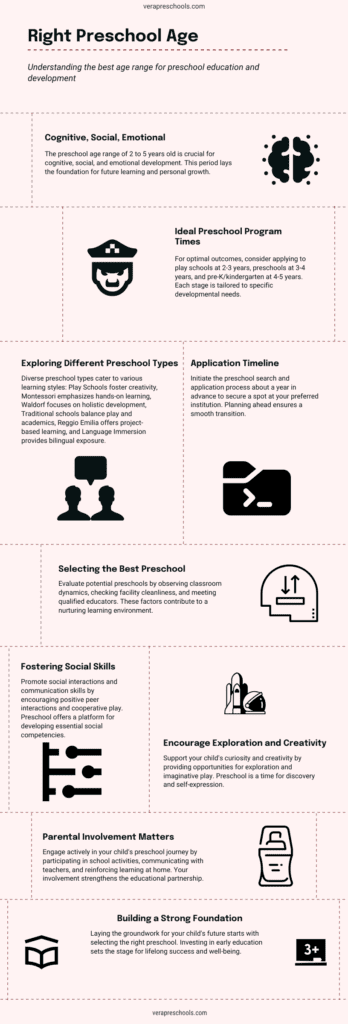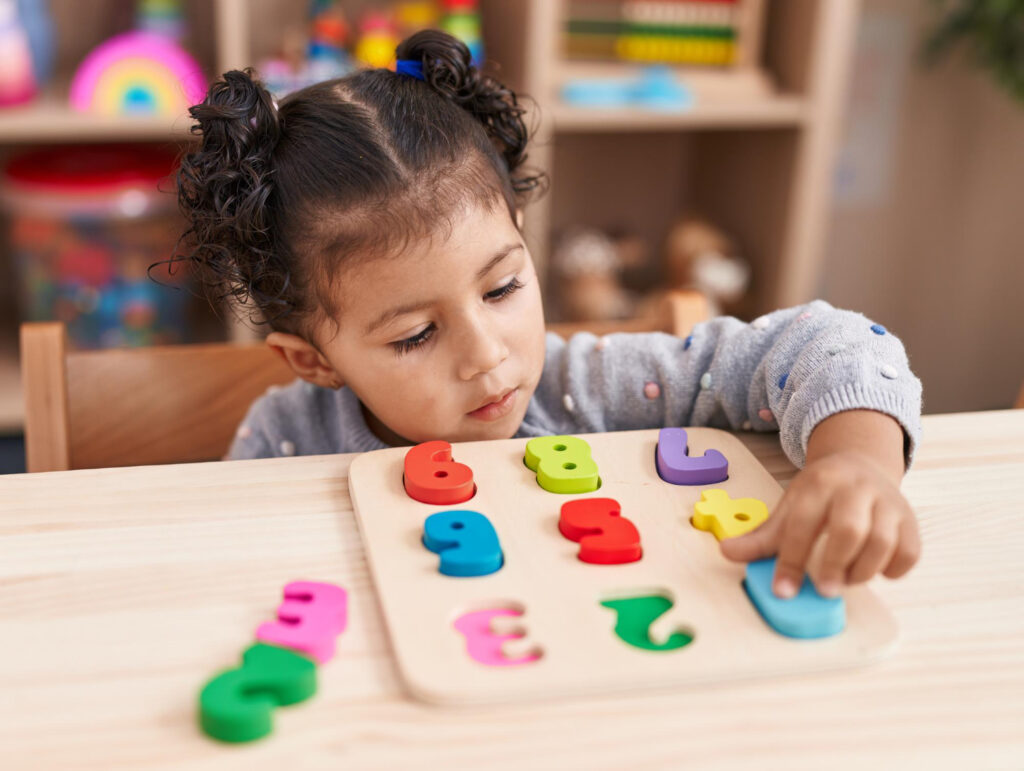As parents, one of the most crucial decisions we make is choosing the right educational path for our little ones. Preschool, often the first step in this journey, plays a pivotal role in shaping a child’s early learning experiences. In this blog, we’ll delve into the nuances of preschool age, explore when to apply, and discuss the various types of preschools available.
Understanding Preschool Age
The term “preschool age” typically refers to the period when a child is between 2 to 5 years old. These early years are characterized by rapid cognitive, social, and emotional development. During this phase, children are like sponges, absorbing information from their surroundings and building essential skills.
When to Apply for Preschool
The ideal time to apply for preschool varies based on individual readiness and family preferences. Here are some guidelines:
Play School / Nursery: Children can typically start play school or nursery around 2 to 3 years old. These programs focus on play-based learning, socialization, and basic motor skills.
Preschool: Formal preschool programs usually admit children around 3 to 4 years old. Here, kids engage in structured activities, early literacy, and numeracy concepts.
Pre-K or Kindergarten: Around 4 to 5 years old, children enter pre-K or kindergarten. These programs prepare them for elementary school by emphasizing academic readiness and social skills.
Here’s a quick breakdown:
- 2 to 3 years old: Early preschool or toddler programs.
- 3 to 4 years old: Standard preschool programs.
- 4 to 5 years old: Pre-kindergarten programs.
It’s important to consider your child’s readiness, both socially and emotionally, when deciding the right age to start preschool.
Types of Preschools: Finding the Right Fit
There are various types of preschools, each with its unique approach and philosophy. Here are some common types:
- Play Schools: These emphasize play, creativity, and socialization. Play schools often have flexible hours and focus on developing motor skills.
- Montessori Schools: Focuses on child-led learning with hands-on activities and mixed-age classrooms. Emphasizes independence and self-paced learning.
- Waldorf Schools: Waldorf education emphasizes creativity, imagination, and holistic development. Art, music, and nature play a significant role.
- Traditional Preschools: These follow a structured curriculum, balancing play and academics. They prepare children for kindergarten.
- Reggio Emilia: Encourages exploration and discovery through project-based learning and a strong emphasis on community and environment.
- Language Immersion Programs: Focus on teaching children a second language through immersive, bilingual environments.
Conclusion
Preschool age is a magical time when children explore, learn, and build the foundation for future education. Whether it’s play school, preschool, or nursery, choose an environment that nurtures their curiosity and sets them on a path of lifelong learning.
Remember, every child is unique, so trust your instincts and find the perfect fit for your little one. Visit schools, meet teachers, and observe classes to ensure the best choice. Happy preschool hunting!

Frequently Asked Questions
1: What’s the right age to start preschool?
A: Most children begin preschool between 2 to 4 years old, depending on the program and individual readiness.
2: How do I choose the best preschool for my child?
A: Consider factors like teaching philosophy, teacher qualifications, safety measures, and proximity to your home.
3: Is play-based learning essential during preschool age?
A: Yes! Play-based learning fosters creativity, social skills, and cognitive development.
4. What should I look for during a preschool visit?
During a visit, observe the classroom, teacher-student interactions, and the overall atmosphere. Look for engaged children, a variety of activities, clean facilities, and caring teachers.
5. How can I prepare my child for starting preschool?
Encourage independence with tasks like dressing and eating. Establish a routine, talk positively about preschool, and visit the school together to help your child adjust.

